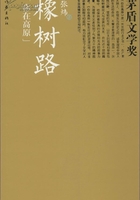Arriving at the creek a detachment of the British was found on the opposite side, engaged in scuttling the ferry boat. The riflemen drew nigh unperceived, and poured in a well directed and deadly fire, which produced the utmost consternation. The fire was returned in volleys, but the limbs and branches of the trees suffered infinitely more than the riflemen who lay behind them. Marion now made his arrangements for crossing the stream. But this was not to be done in the face of the enemy, with the creek before him wide and swollen.
Marion moved rapidly up the creek, which he swam at the first favorable point some five miles above Witherspoon's. This brought him nearer to Doyle's position, but the latter had not waited for him.
Whether it was that he had little taste for the sort of annoyances to which Watson had been subjected, or that he had received instructions from Lord Rawdon to join him at Camden, in all haste, it is certain that he made the greatest speed in hurrying in that direction.
It was at this period that Marion held a consultation with Horry, in which he is represented by that officer as in an unusual state of despondency.
His enemies were accumulating around him with unwonted rapidity, and in greater force than ever. Watson, furious at his late disasters, and mortified with the result of his confident anticipations, had sallied forth from Georgetown with a reinforcement.
He had gone towards the Pedee, where he strengthened himself with the large body of Tories which Gainey had commanded. Horry tells us of a third body of men at the same time in the field, with Doyle and Watson, and all addressing themselves to the same object, his utter expulsion from the country. At that moment the expulsion of our Partisan would leave the conquest of the State complete.
In these emergencies, with these foes accumulating around him, the mind of Marion naturally addressed itself with more gravity than usual to the task of his extrication from his enemies. His countenance, as Horry describes it, was troubled. But, with his usual taciturnity, he said nothing on the subject of his anxieties. Seeing him walking alone, and in deep revery, Horry approached him, and said --"General, our men are few, and, if what I hear be true, you never wanted them more."Marion started, and replied-- "Go immediately to the field officers, and know from them, if, in the event of my being compelled to retire to the mountains, they will follow my fortunes, and with me carry on the war, until the enemy is forced out of the country. Go, and bring me their answer without delay."It was a peculiarity in Marion's character, that he should have entrusted such a commission to a subordinate. But it accords with all that we have seen of the reserve and shyness of his moods.
The simple remark to Horry indicates his admirable firmness, his calculations, even of possible necessities long in advance, and his instinctive mode of encountering them as he best might.
His determination, on his own account, to carry on the war against the enemy in the mountains, till they or himself were expelled from the country, denotes the unsubmitting patriot. The reader must not forget that, at this moment, there was no force in the State but his own, arrayed against the British. Sumter was still `hors de combat' from his wound. The army of Greene, having with it Pickens, and other native militia, was in North Carolina, watching the movements of Cornwallis.
Lord Rawdon, with a strong British garrison, held Camden.
Charleston and Georgetown, Ninety-Six and Granby, Forts Watson and Motte, were all held, with numerous other conspicuous points, by the British;and with Watson, whose force now numbered a thousand men, Doyle half that number, and several active and large bodies of Tories prepared to cooperate with these against our partisan, the danger of Marion's situation, and his patriotic resolve of character, are conspicuous at a glance.
Horry sought the officers, and promptly returned to his commander.
To a man they had pledged themselves to follow his fortunes, however disastrous, while one of them survived, and until their country was freed from the enemy. Marion's countenance instantly brightened --we cannot forbear the use of Horry's own language, though it may provoke a smile -- "he was tip-toed" -- (i.e.) -- he rose upon his toes --and said "I am satisfied -- one of these parties shall soon feel us."*--
* Horry's MS., pp. 59, 60.
--














